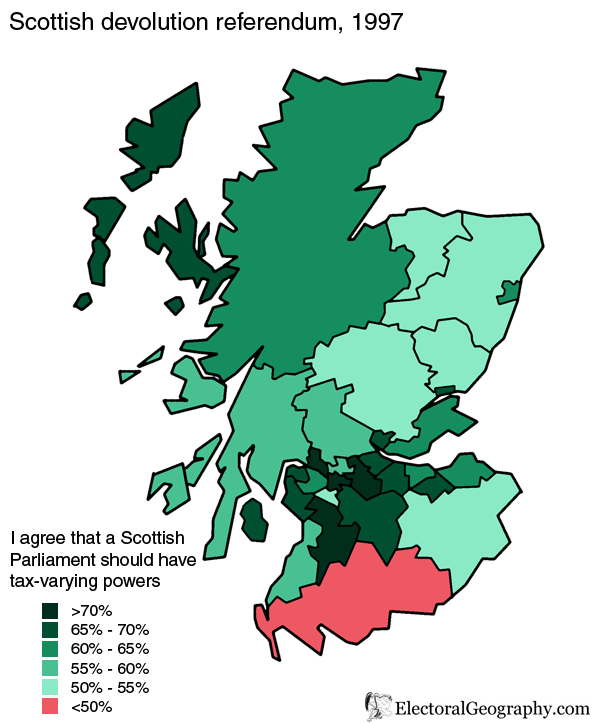The Arnold Kemp Archives
The Real Reason Trump Didn’t Attack Bill Clinton
Hillary Clinton referenced “my husband’ in the first debate the other night – this was unusual, and a critic quoted in the New York Times said it was a remark that “put women back years” but it could be a good move. Although most commentators felt she won the debate hands down; the polling in the swing states is still close. If what people like about Donald Trump is that he’s a real person and they see her as a patronising know-all, then her long marriage to Bill shows Hill in a different light.
The political class have never forgiven Bill. You can see them having flashbacks when his name is mentioned. The crudity of the sex scandal that engulfed the White House during his presidency is all too vivid in their memories. The embarrassment, the humiliation that they felt as the world’s media swarmed into Washington, holding their hands over their mouths to mask their giggles, still surfaces easily.
US Election: Some Hard Lessons from Brexit for the Democrats.
Brexit continues to lie untouched in the dog’s breakfast bowl, no more appetising in the cold light of day than it was when things started to smell bad on the night of June 23. Hard Brexit, soft Brexit, Brexit over easy on rye, nobody’s quite sure what they ordered. The Scots aren’t planning to shut up and eat what someone else requested on their behalf, that’s clear. Alex Salmond said recently there will be a new independence referendum in 2018.
The US is facing a similar binary choice with one indigestible option on the menu: here are some lessons from a still-suffering Remain supporter.
The Arnold Kemp Archive
The Arnold Kemp archive you will find on the right hand menu on this page is an attempt to compile some of my father’s writing. For many years, he wrote…
Turn out will be high in the US election, predicts senior political journalist Emily Rooney
“Turnout will be huge. It will be what it was the first time Obama was elected,” political journalist Emily Rooney predicted at a women’s forum in Boston’s Beacon Hill this week. But the former political director at Fox News would not be drawn who will win the increasingly close race.
Fellow media commentator Margery Eagan said she is concerned by the possibility of a Trump win: “I don’t want to be hiding under my desk the way I was when I was five years old, worrying about a nuclear war.”
Clinton, Eagan said “knows everything”. But she “described Trump as a “magnetic’ figure, whose comments constantly “disrupt the news cycle”.
“Honestly, during the primaries if you were in your kitchen and Trump came on and made a speech you might stand there and listen, because he’s magnetic, he’s mesmerising, he says outrageous things and that’s part of what has taken him where he is today.”
She said “People forget that the media is a business and Trump has been a bonanza for the cable channels”.
The Boomers versus Generation X
Whether Hillary Clinton or Donald Trump wins the presidential election race in the USA, the next President will be pushing 70 – and a member of the post-war generation known as the “boomers”. It’s a generation that at least here in the US is still very much to the fore. People don’t seem to say here, as I have heard in the UK, that it’s about time they started to make way for the babies of the 60s and 70s, known as Generation X, famous for cynicism, Britpop and apathy.
Perhaps looking at the godawful mess that British politics is has been left in by its Generation X leaders is not much of an advert. For some, that slacker style, like a bad tattoo has stuck with age. Both David Cameron and Boris Johnson frequently gave the impression of having done their homework in the back of the ministerial limo and spent more time on the sardonic quip or a Smiths’ reference than on policy detail.
In the USA During the Olympics – Missing the BBC
Note: There is an add at the end about how I am now able to watch the BBC abroad.
So you had to change channel during one of Andy Murray’s matches? Sorry to hear about that. That’s really vegan cheese.
Brits complaining about the BBC coverage of the Olympics should try watching them on NBC. It’s easy in the UK to get involved in the unfolding cavalcade of colour, excitement and drama that unfolds across several channels.
A Wartime Escape: Another Arnold Kemp
This is an excerpt from Arnold Kemp’s family memoir: “The Sentimental Tourist”. It is his account of the wartime escape of another Arnold Kemp, his uncle, and the younger son of the minister in Birse who is also mentioned here, Rev Arnold Low Kemp
Uncle Arnold’s escape
A REMARKABLE TALE of the war comes to us from my Uncle Arnold (Addie). Uncle Addie was also able, if less literary than his older brother (my father Robert Kemp), and an active and adventurous boy. His informal education was to prove of at least as much value as his studies in the classroom. Indeed, his childhood ploys on the Dee probably helped to save his life later. He was dux of Aboyne intermediate school and then followed my father to Robert Gordon’s. He took a diploma in tropical agriculture at Marischal College (the other wing of the university) and was appointed an assistant manager of a rubber estate in the state of Kedah, North Malaya. He left in 1937 on the PO steamship Corfu and immediately joined the local volunteer force. In 1940 he moved to Perak, transferred to the Federated Malay States Volunteer Forces and began extended wartime training.
In December 1941, while he was on long leave in Sydney, the Japanese attacked Pearl Harbor and northern Malaya. He joined the Australian Imperial Forces but on his urgent recall to Malaya by the volunteer forces was granted an immediate discharge to enable him to return. He arrived in Singapore in January 1942 in the midst of a severe air raid. He was sent by train to Kuala Lumpur but it was overrun by the Japanese and he had to withdraw by stages to Singapore.
The Japanese assault forces penetrated the Singapore’s island defences about the 6th or 7th of February. Their gunfire turned night into day. Addie was in charge of a section of about 10 men with two machine guns, deployed in pill boxes on the tiny island of Berhala Repin, straight across from Admiralty Steps on the Singapore sea front. Fires raged throughout the city and the harbour area. Some members of the company were killed as the Japanese strafed and bombed at will: they had total control of air space.
On Friday, February 13, two days before the fall, a party of Allied soldiers was spotted on a pier half a mile from Addie’s pill box. Their company commander, Eric ‘Whisky’ Bruce, ordered him to take a couple of men and guide the party back to company headquarters. It was a hairy journey as Japanese planes searched for victims. Addie and his men ducked and dived, cowering in the craters with which the road was pitted. But when they reached the pier they found that the party had been cut to pieces. Bodies were spread about everywhere. They found no survivors but as they were about to leave noticed a man, half buried, who still seemed to be alive. When they pulled him free, they found that his body had been severed; ‘he came away with no lower part attached’. Convulsed with nausea, they covered him as best they could and left. Later that night their nerves were again shaken when a Japanese bomb fell on a rock near Addie’s pill box. A jagged boulder crashed through its concrete roof and came to rest on the lid of a full box of hand grenades.
During this week many ships were sunk in the harbour roads. Early one morning Addie saw an empty lifeboat gliding towards the pill box. He swam out to it and, grabbing its trailing painter, beached it, and secured it to an overhanging tree.
Summary of a talk about 1979
‘1979: Scotland’s First Constitutional Referendum’
Published on: November 6, 2013 Author: CSCS
On 5 November 2013, the Centre was pleased to welcome journalist and writer, Jackie Kemp, who discussed ‘1979: Scotland’s First Constitutional Referendum’. Below is this listener’s brief summary of the lecture.
Go on yersel, England. Scotland is sticking with the lady in red – response to the Brexit vote
It was all wrong on the day of the poll, like a scene from Shakespeare, unseasonal thunderstorms, flooding, owls hooting in the afternoon. ‘Is that a dagger that I see…
“England, Don’t Let Us Down!” – an essay from Berlin on the eve of the Brexit vote.
This week in East Berlin wherever I went, I seemed to hear the sound of bagpipes. First, a man in a Glengarry playing the pibroch in the famous street Unter…
Leithers Scunnered By Hand-Wringing Over Pitch Invasion
A Wee Piece of Hampden Here in Leith
To paraphrase the famously dull but accurate Times headline, “Small Earthquake in Chile; Not Many Dead”, the reports of the Scottish Cup Final last weekend could have read: “Small Riot at Hampden, Not Many Hurt.”
In fact they didn’t. The Sunday morning newsstands were devoted to 20 point outrage, with the Sunday Mail alone in having a positive headline “Glory, Glory”: although Monday’s Evening News aced it with “They Claimed It.” The TV and radio took the same approach with sports coverage jettisoned in favour of bad news reporting.
At the Holyrood Election Thursday: First Vote Labour, Second Vote Tory?
Whether Labour or the Conservatives takes second place on Thursday (May 5) is the talking point of the Scottish election. Betting company Paddy Power thinks Labour; Professor John Curtice says it could go either way. Professor Curtice is probably right. He knows when to poll them, and he knows when not to call them – as “The Pollster”, a satirical version of the the Kenny Rogers song “The Gambler” dedicated to the Prof by Vic Rodrick and Annie Gunner Logan has it. (For reasons of copyright etcetera, the pair’s sharp-witted parodies are only ever heard live and if they announce dates for this year’s Fringe, grab a ticket.) Whichever way the cookie crumbles, the opposition vote is likely to be split between Labour and the Tories. So is there scope for them to pool their resources in a new politics? Is it possible for Kezia Dugdale and Ruth Davidson to work together on at least some issues to form a coherent opposition?
Oops. Are the SNP’s Roots Showing?
A couple of things have come up for me this week as the Scottish election campaign builds towards another seemingly inevitable SNP triumph. Firstly, a friend, a committed ‘Yes’ voter and an SNP member said he was going to have to stay home on polling day. He could not bring himself to vote SNP this time, he said, because he is so appalled by the SNP’s inaction over MSP Sandra White’s behaviour. The SNP MSP apologised for re-tweeting a grossly offensive anti-semitic cartoon posted by a Neo-Nazi she follows online and whose tweets she has reposted before. She said she posted the image “in error” and no disciplinary action has been taken against her. The implication for my friend was that a degree of anti-semitism is tolerable within the Scottish National Party.
Five Reasons Boris Johnson is the Donald Trump of UK Politics.
One. Looks.
Fat and flamboyant, Boris Johnson and Donald Trump are alike well known for their blond locks which are of the type that used to be described in shampoo adverts as ‘unmanageable’. Just like both of them.
Five Things the Britain in Europe Referendum Campaign can Learn from Scotland’s IndyRef
“One man’s canary in the coal mine is another man’s tweeting fearmonger” The referendum on Britain’s membership of the EU is to take place on June 23, 2016. Below are 5 lessons the Remain campaign can learn from Scotland’s independence referendum of 2014.
A Year of Blogging and my Most Read of 2015
“The path of truth is a lonely road” Cairngorms: A cyclist emerging from a cloud inversion. Photo Rob Bruce 2015. 2015 has been the year I really started blogging. It was a big step for someone who has worked as a professional journalist and freelance to start putting their work out there onto the web without it being commissioned and paid for. Why would you write something when you are not getting a fee? Once this kind of writing was known as ‘vanity publishing’. David Torrance quoted the great and much-missed Ian Bell in his Herald column this week “There is no such thing as free in journalism. Free is just another word for hobby.” Maybe so. I believe in the value of newspapers and professional journalism.
Why is the SNP riding so high in the polls?
The Scottish Parliament at night. Photo Rob Bruce Dec 18. Revised with input from the team at Sceptical Scot. The next Holyrood election is in May and on current form, the SNP will take almost all (if not all) the directly elected seats, leaving the Scottish Parliament with only a token (list-based) opposition. But why is this? There are many issues that “normally” might affect their poll rating.
Spending Review Sets the Scene for Scottish Tories to Beat Labour into Second Place in Holyrood Election
Was George Osborne’s spending review drawn up with an eye on the forthcoming Holyrood election?
With his U-turn on tax credits, he has certainly redrawn the political landscape; shooting Scottish Labour’s fox and perhaps creating the conditions in which the Scottish Conservative Party could become the second party in Scotland. That would be an earthquake in Scottish political terms.
Perhaps ‘Earthquake’ will be the title of Iain McWhirter’s next book as ‘Tsunami: Scotland’s Democratic Revolution’ about the SNP landslide at the General Election is piled high in Scotland’s bookshops in time for the Xmas market, illustrated with a Japanese-style drawing of a huge wave.
Edinburgh: A City in Decline?

Platinum Point from Asda Newhaven. Pic Rob Bruce.
Update: Fri November 20. The Evening News on the tram situation.
Below posted Sunday November 15
IF EDINBURGH is entering a period of decline which may last the rest of the 21st century, the SNP will have to shoulder a great deal of blame.
At a time when the city has never been more in need of strong leadership, vision and imagination for its future it is being sabotaged by a party which is prepared to sacrifice the economic prosperity of the capital to a populist agenda it believes will further its nationalist project.





